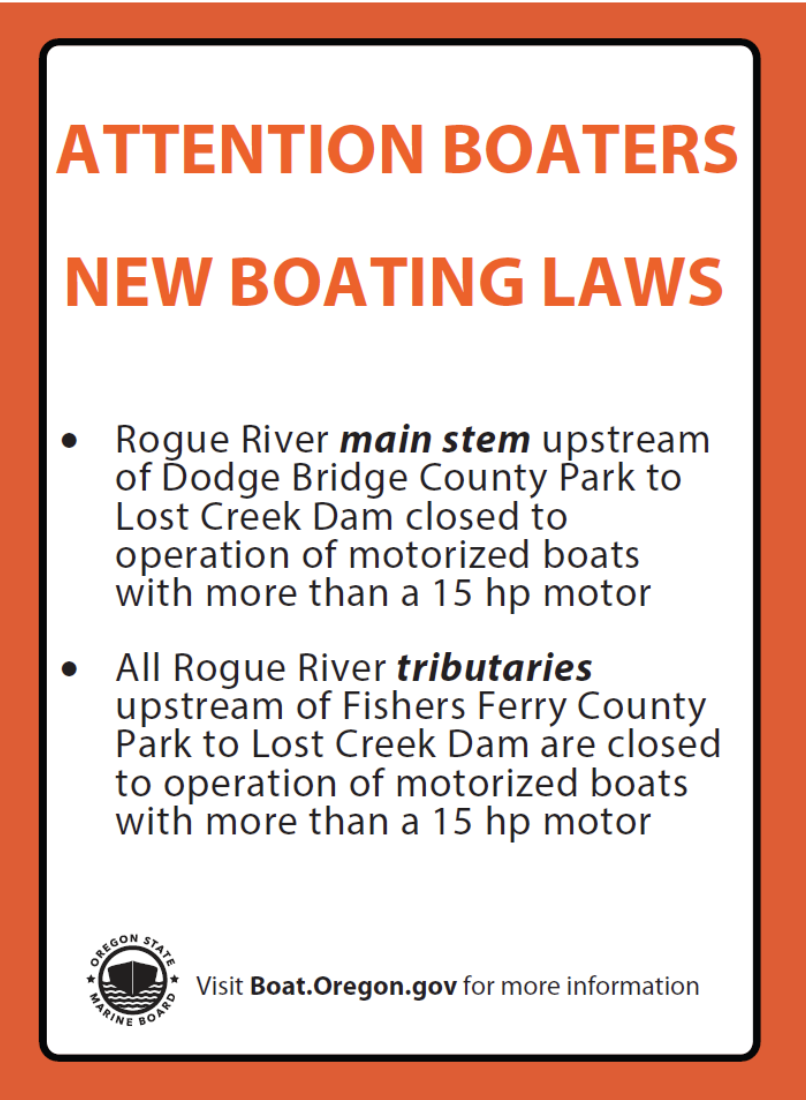Cracking the hudson river trading algo developer interview is widely considered the pinnacle of achievement for software engineers aiming for the top tier of quantitative finance. This isn’t just another tech interview; it’s a rigorous examination of your fundamental knowledge, problem-solving speed, and deep technical intuition. To succeed, you’ll need more than just LeetCode practice; you must demonstrate a profound command of low-latency C++, an intuitive grasp of systems design for high-performance environments, and a solid foundation in quantitative analysis. The process is designed to find the few who can build and optimize trading systems where nanoseconds matter, often involving complex FPGA development and a masterful understanding of core data structures. This guide is your comprehensive map to navigating every stage of this daunting but conquerable challenge.

An Insider’s Take: What It’s Really Like
Going through the interview process with Hudson River Trading felt less like a series of questions and more like a sustained intellectual sparring match. From the very first phone call, it was clear that they valued first-principles thinking above all else. They didn’t just want to know if you could solve a problem; they wanted to see how you deconstructed it, the trade-offs you considered, and how you’d defend your architectural choices against intense scrutiny.
The technical rounds were incredibly deep. One moment you’re discussing the intricate details of C++ template metaprogramming, and the next you’re on a whiteboard designing a kernel-bypass networking stack to minimize jitter. It’s a full-stack mental workout, covering everything from bit manipulation and cache-aware data structures to probability puzzles that test your ability to think on your feet. The experience is humbling and exhausting, but also exhilarating. You leave each session feeling like your brain has been pushed to its absolute limits, which is exactly the point. They are looking for engineers who thrive under that kind of pressure and find joy in solving the hardest problems in the industry.

What Does the Hudson River Trading Algo Developer Interview Process Involve?
Understanding the structure of the interview process is the first step toward conquering it. While the exact steps can vary slightly depending on the specific role (e.g., C++ vs. FPGA) and your experience level, the journey typically follows a well-defined, multi-stage path designed to test your capabilities from every conceivable angle. It’s a marathon, not a sprint, and preparing for each stage is crucial.
The Initial Phone Screen: Your First Hurdle
This is typically a 45 to 60-minute conversation with an HRT engineer. Don’t mistake this for a simple resume review. This is a highly technical screen. You can expect a mix of questions covering your background, a few challenging algorithmic problems, and perhaps some fundamental concepts related to C++, operating systems, or networking.
The goal here is for them to quickly gauge your core competency and communication skills. Can you clearly articulate your thought process while coding in a shared editor? Are your foundational computer science skills rock-solid? This is the gatekeeper round; a strong performance here is essential to move forward. They are filtering for candidates who possess an immediate and intuitive grasp of algorithmic problem-solving.
The Technical Coding Challenge: Where Theory Meets Practice
If you pass the phone screen, you’ll often be sent an online coding challenge or a take-home project. This could be a timed assessment on a platform like HackerRank or a more open-ended project that you have a few days to complete. The problems are usually more complex than those in the phone screen and are designed to test your ability to write clean, efficient, and robust code.
For an algorithmic developer role, this challenge might involve implementing a simple market data handler, a basic matching engine, or solving a particularly tricky optimization problem. Pay close attention to edge cases, performance, and the clarity of your code. This is where your practical coding skills are put under the microscope, away from the direct pressure of an interviewer watching your every keystroke.
The Deep-Dive Technical Interviews: The Heart of the Matter
This stage usually consists of several back-to-back technical interviews, often conducted remotely via video call. Each session lasts around 60 minutes and is led by a different senior engineer or team lead. This is where the true depth of the hudson river trading algo developer interview becomes apparent. The topics are broad and incredibly deep.
You will face a barrage of questions that can span a wide range of topics. One interview might focus entirely on low-level C++ details and systems programming. Another might be a deep dive into network protocols and Linux kernel internals. A third could be a complex systems design question related to building a high-frequency trading component. Be prepared to go far beyond textbook answers and discuss real-world trade-offs.
Expert Insight from Dr. Alistair Finch, former HFT Strategist: “At HRT, they’re not just looking for C++ knowledge; they’re looking for C++ intimacy. You need to understand memory layout, cache coherency, and template metaprogramming as if they were your native language. It’s about squeezing every last nanosecond out of the hardware.”
The Final On-Site Gauntlet: Putting It All Together
The final stage, historically an on-site visit to their office (though sometimes conducted virtually), is an intense, full-day affair. It involves more technical interviews, but also includes sessions with team managers and senior leadership. The technical questions may become even more open-ended and collaborative.
This is also where they assess cultural fit. They want to see how you interact with potential teammates, how you handle constructive criticism, and whether you have the passion and intellectual curiosity that defines their engineering culture. You might be asked to present your solution to a problem on a whiteboard, defend your design choices, and brainstorm alternative approaches with the team. It’s a test of your technical prowess, your collaborative spirit, and your endurance.

Core Technical Skills HRT Is Screening For
While the process is multifaceted, it all boils down to evaluating a core set of technical skills that are non-negotiable for a top-tier quantitative trading firm. Excelling in these areas is your ticket to a successful interview.
Mastery of C++ in a Low-Latency Context
For most algo developer roles at HRT, C++ is the language of choice, but their expectations go far beyond standard application development. You need to think like a systems programmer obsessed with performance. This means having an intimate knowledge of memory management, cache locality, compiler optimizations, and the C++ object model.
Be prepared for questions on topics like virtual function overhead, template metaprogramming for compile-time computation, move semantics, smart pointers, and how to write code that avoids cache misses and pipeline stalls. They want to see that you can write C++ that is not just correct, but is also “mechanically sympathetic” to the underlying hardware.
Advanced Algorithms and Data Structures
Your knowledge of algorithms and data structures must be both broad and deep. While you should certainly be comfortable with standard topics like trees, graphs, heaps, and hash tables, the questions at HRT will often have a unique twist. They might be set in the context of financial data or require you to invent a novel data structure to meet a specific set of performance constraints.
The emphasis is on understanding the trade-offs. When is a hash table better than a balanced binary tree? What are the cache performance implications of each? How would you design a data structure for incredibly fast insertions and lookups where memory is constrained? Your ability to analyze complexity and performance from a practical, hardware-aware perspective is key.
Systems Design for High-Frequency Trading
Systems design questions at HRT are tailored to their domain: building ultra-low-latency, high-throughput systems. You won’t be asked to design a social media feed. Instead, you’ll be asked to design a component of a trading system, such as a matching engine, an order gateway, or a risk management system.
The interviewers will probe your understanding of concurrency, inter-process communication, and distributed systems. You should be able to discuss the pros and cons of different messaging patterns (like TCP vs. UDP), serialization formats, and strategies for ensuring fault tolerance and high availability. The focus is always on minimizing latency at every step of the process.
Networking and Operating Systems Fundamentals
A significant portion of low-latency trading is about getting data from the network to your application’s logic as fast as humanly possible. This requires a deep understanding of the networking stack and the operating system.
Expect questions about the TCP/IP suite, the differences between TCP and UDP, and why HFT firms often prefer the latter. You should be familiar with concepts like kernel bypass, polling versus interrupts, and how to optimize socket performance. A solid grasp of Linux internals, including process scheduling, memory management, and system calls, is also essential. They need to know you understand the environment your code will live and die in.
How Do You Prepare for the Quantitative and Probability Questions?
Beyond pure computer science, a strong quantitative intuition is a must. You don’t need to be a math Ph.D., but you must be comfortable with probability, expected value, and brain-teaser-style problems. These questions are designed to test your analytical and logical reasoning skills under pressure.
The key to preparation is practice and focusing on the underlying principles rather than memorizing formulas. Work through problems from resources like “A Practical Guide to Quantitative Finance Interviews” and “Heard on the Street.” The goal isn’t just to get the right answer, but to clearly and logically explain your thought process. They want to see how you model an uncertain situation and arrive at a reasoned conclusion.
Expert Insight from Dr. Alistair Finch, former HFT Strategist: “Many candidates cram complex formulas but fail on basic intuition. HRT wants to see how you think. Can you quickly model a simple game, calculate expected value under pressure, and explain your reasoning? That’s far more valuable than reciting Black-Scholes from memory.”
The Cultural Fit: Are You HRT Material?
Hudson River Trading has a distinct culture built on collaboration, intellectual curiosity, and a relentless drive to solve hard problems. They look for people who are humble, low-ego, and genuinely passionate about technology. During the interview, they are trying to determine if you are someone they would want to work with on a difficult problem at 2 AM.
Show your curiosity. Ask insightful questions about their technology stack, their research process, and the challenges their team is currently facing. Be open about what you don’t know and demonstrate a willingness to learn. They value a collaborative problem-solving approach over a lone genius mentality. Being a brilliant engineer is only half the battle; being a brilliant and collaborative engineer is what makes you HRT material.
A Glimpse into HRT’s Technical Challenges
The technical problems you’ll face are designed to simulate the real-world challenges of high-frequency trading. They test not just your coding ability, but your problem-solving process in a domain-specific context. Below is a conceptual breakdown of the types of challenges you might encounter.
| Challenge Type | Primary Skills Tested | Example Concept | Key to Success |
|---|---|---|---|
| Market Data Simulation | Data Structures, Low-Level I/O, Performance Optimization | Write a program to parse a high-volume stream of binary market data packets and update an order book in real-time. | Focus on zero-copy techniques, efficient data structure updates, and meticulous handling of binary formats. |
| Algorithmic Logic Puzzle | Problem Solving, Mathematics, Clean Code | Implement the logic for a simple trading strategy based on a set of rules and a stream of price updates. | Decompose the problem into small, testable units. Handle edge cases and ensure your logic is mathematically sound and easy to follow. |
| Latency Optimization | Systems Knowledge, C++, Hardware Awareness | Given a snippet of code, identify performance bottlenecks and rewrite it to minimize execution time. | Profile the code mentally. Think about cache misses, branch mispredictions, memory allocation, and system call overhead. |
| Concurrency Problem | Multithreading, Synchronization, System Primitives | Design a lock-free data structure or solve a producer-consumer problem in a high-performance setting. | Demonstrate a deep understanding of atomic operations, memory barriers, and the trade-offs between different synchronization mechanisms. |
The journey through the hudson river trading algo developer interview is undoubtedly one of the most demanding in the tech industry. It requires a rare combination of deep computer science knowledge, quantitative aptitude, and a specific mindset geared towards performance and collaboration. Success demands rigorous and targeted preparation across a vast array of topics, from the lowest levels of hardware interaction to the abstract logic of trading algorithms. It is a formidable challenge, but for those who are passionate about solving complex problems at the intersection of technology and finance, the reward is an opportunity to work with some of the brightest minds on some of the most interesting technical challenges in the world.
Comments
Kenji Tanaka
★★★★★ (5/5 stars)
Posted: 3 weeks ago
The most thorough and challenging interview process I’ve ever been through. The C++ questions were incredibly deep, going into memory alignment and cache coherency in a way I hadn’t seen elsewhere. The systems design round on building a matching engine was intense but fair. So glad I prepared for months. Started my role in Q1 2024 and it’s everything I hoped for.
Priya Sharma
★★★★☆ (4/5 stars)
Posted: 1 month ago
Made it to the final round but didn’t get an offer. The feedback was constructive, though. The process is exactly as described here. The probability and brain teaser questions were tougher than I expected. My advice: don’t just practice coding, really brush up on your statistics and expected value problems. It’s a huge part of their evaluation.
Ben Carter
★★★★★ (5/5 stars)
Posted: 2 months ago
Fantastic experience, even though it was virtual. The engineers were incredibly smart and genuinely interested in my thought process. The coding challenge was a very practical problem related to parsing market data, which was a fun project. Much better than generic LeetCode questions.
Sophie Dubois
★★★☆☆ (3/5 stars)
Posted: 2 months ago
It’s an incredibly long and draining process. From the first contact to the final decision, it took over 7 weeks for me. The technical bar is astronomically high, which is fine, but the scheduling and communication could have been a bit faster. Be prepared for a marathon.
Omar Al-Jamil
★★★★☆ (4/5 stars)
Posted: 3 months ago
The phone screen was no joke. I was asked to implement a data structure on the spot that I had never seen before. It really tests your ability to think from first principles. Failed at that stage but it was a great learning experience for other quant interviews.
Chloe Bennett
★★★★★ (5/5 stars)
Posted: 4 months ago
This article is spot on. I interviewed for an FPGA role, and the questions were a mix of Verilog/VHDL design problems and how to interface the FPGA with the host CPU with minimal latency. They really care about the hardware/software boundary.
Liam Murphy
★★★★☆ (4/5 stars)
Posted: 5 months ago
The “cultural fit” part is real. They asked a lot of questions about past projects, what I found interesting, and what I would have done differently. They’re looking for genuine passion and curiosity, not just someone who can solve puzzles.
Isabella Rossi
★★★★☆ (4/5 stars)
Posted: 5 months ago
My final round included a collaborative session where I had to work with an engineer to debug a piece of complex, multithreaded code. It was less about finding the bug quickly and more about how we communicated and worked together to solve the problem. Very unique interview style.
David Chen
★★★☆☆ (3/5 stars)
Posted: 6 months ago
The process is brutal. The level of detail they expect on Linux kernel internals and networking protocols like TCP vs UDP is immense. I felt my preparation was strong, but there were a few questions that were just on another level. Not for the faint of heart.
Maria Gonzalez
★★★★★ (5/5 stars)
Posted: 7 months ago
Received an offer last fall. The best part of the process was talking to the engineers. You can tell everyone is incredibly smart but also very down-to-earth and willing to discuss complex topics. It made me really want to work there. The interview process is a great reflection of the company’s culture.


